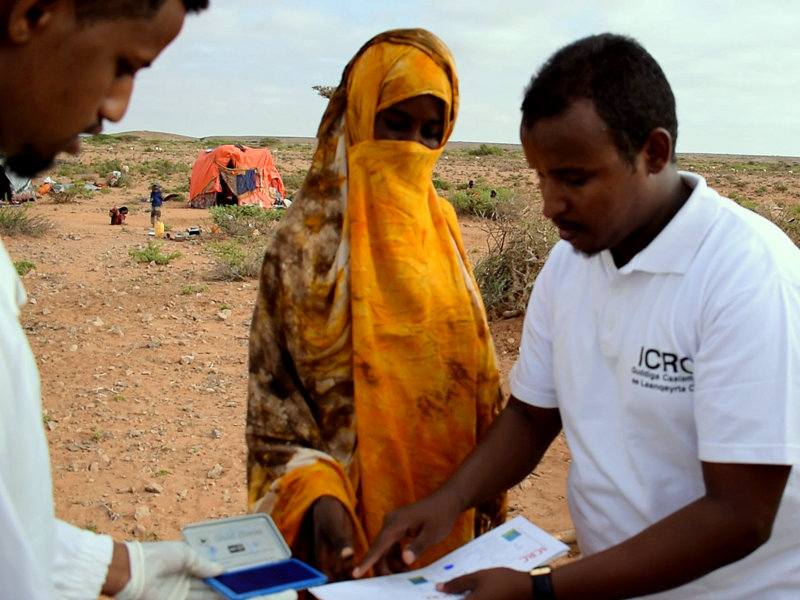The effects of a prolonged drought has robbed pastoralists in Somalia of their most prized possession – livestock. The dry conditions have caused hunger and disease, wiping out camels, goats and sheep in large numbers. Those that survive are visibly frail, producing little meat or milk and fetching paltry sums when traded in the market. Fortunately, the completion of a nation-wide livestock treatment campaign and the prospects of year-end rains have set herders on the recovery path. More than one million animals have been treated in the campaign that was concluded in November, protecting the livelihoods of more than 20,000 pastoralist families who rely on livestock for survival. These photos show the treatment campaign by the International Committee of the Red Cross (ICRC) in the northern Puntland region.

Animals lie in a pen at the livestock market in Garowe town, Nugaal region. Goats and sheep form the larger share of livestock being sold. Fewer animals are available for sale, and they sell at lower prices because of their poor condition. ©Rita Nyaga/ICRC

Pastoralist communities are among the hardest-hit by the drought, having lost their livestock. Though rains have been reported in a few areas, it will be some time before these families fully recover. Residents in Salaxlay village, 12km southeast of Garowe town, are among the casualties of the drought. ©Rita Nyaga/ICRC

Fatuma has lost more than 200 animals to the drought this year. What is left of the herd is weak and susceptible to disease. Without treatment, she will likely lose even more animals, though with ICRC’s recent treatment campaign, the animals have far better chances against disease. ©Rita Nyaga/ICRC

Due to their nomadic lifestyle, pastoralists have little access to veterinary services. Over one million animals across Somalia – camels, cows, goats and sheep – have received medication from ICRC to help protect against parasites and common infections. This kind of support is a first for a number of these families, including Fatuma’s. “It’s the first time my animals are receiving treatment” she said. ©Rita Nyaga/ICRC

The drought conditions have left animals weak due to lack of food and water. Even minor illnesses are a serious threat for animals in this condition. The simple treatment offered by the vet teams boosts the animal’s immunity, helping them weather the harsh conditions. ©Rita Nyaga/ICRC



